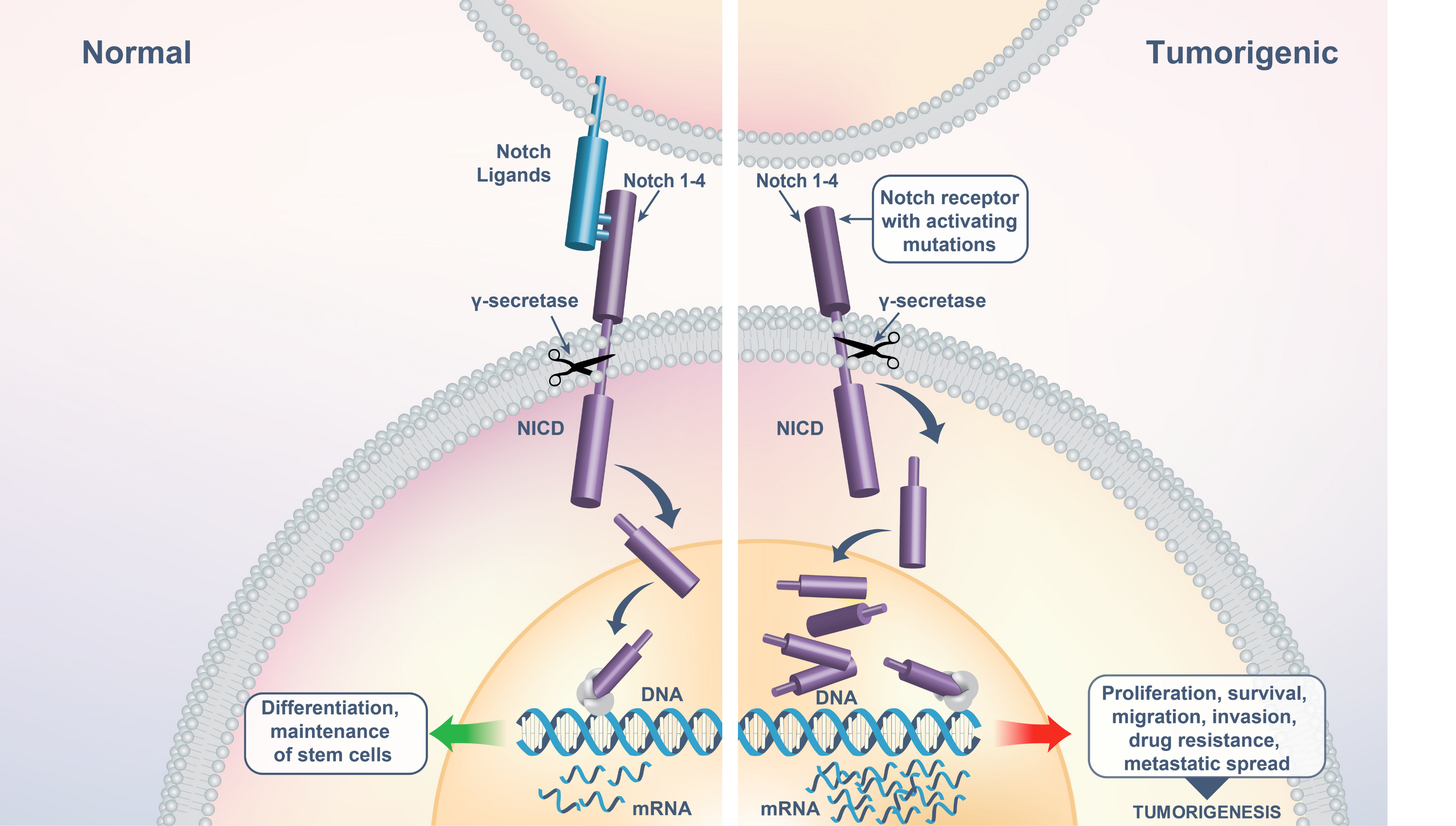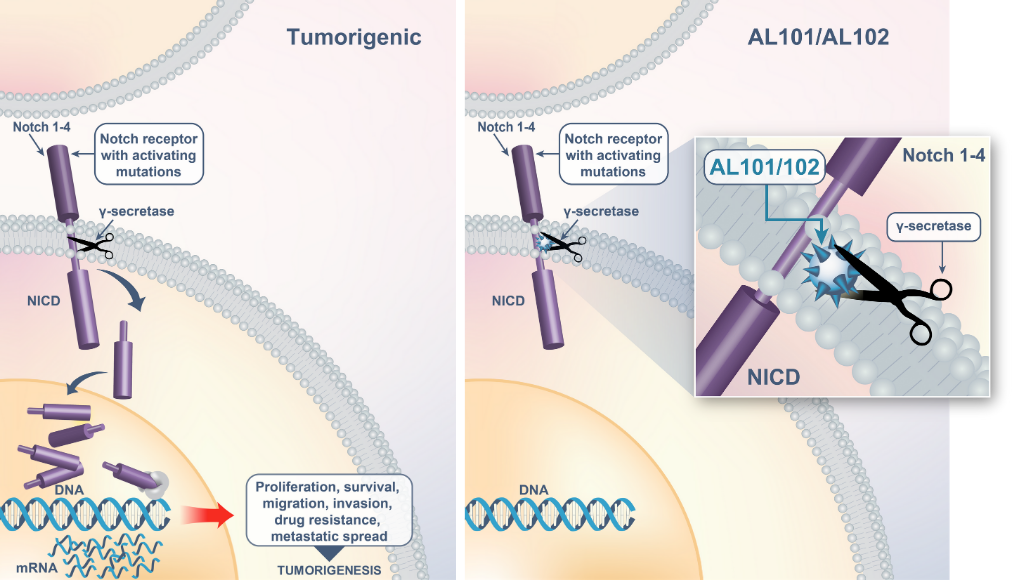

Notch pathway has been implicated in multiple solid tumor and hematological cancers, and often has been associated with aggressive cancers. Notch receptors serve as critical facilitators in processes such as cellular proliferation, survival, migration, invasion, drug resistance and metastatic spread, which all contribute to a poorer prognosis.
Gamma secretase is the enzyme responsible for Notch activation and when inhibited, the Notch pathway activation shuts down.
By developing gamma secretase inhibitors which are designed to impede Notch-pathway activation, we believe we can enable targeted therapy for cancer patients.
How does our technology work in helping to inhibit the Notch signaling pathway?
See the difference between normal and tumorigenic signaling of Notch, and how our gamma secretase inhibitors (GSIs) AL101 and AL102 can impact Notch signaling.

Normal
The Notch pathway is involved in embryonic development and in the renewal and maintenance of adult tissues.

Tumorigenic
In cancers, Notch is known to serve as a critical facilitator in processes such as cellular proliferation, survival, migration, invasion, drug resistance and metastatic spread, all of which contribute to tumorigenesis and cancer progression.

With Treatment
Inhibition of Notch by γ-secretase inhibitors (GSIs) such as AL101/AL102 turns off the Notch pathway activation.